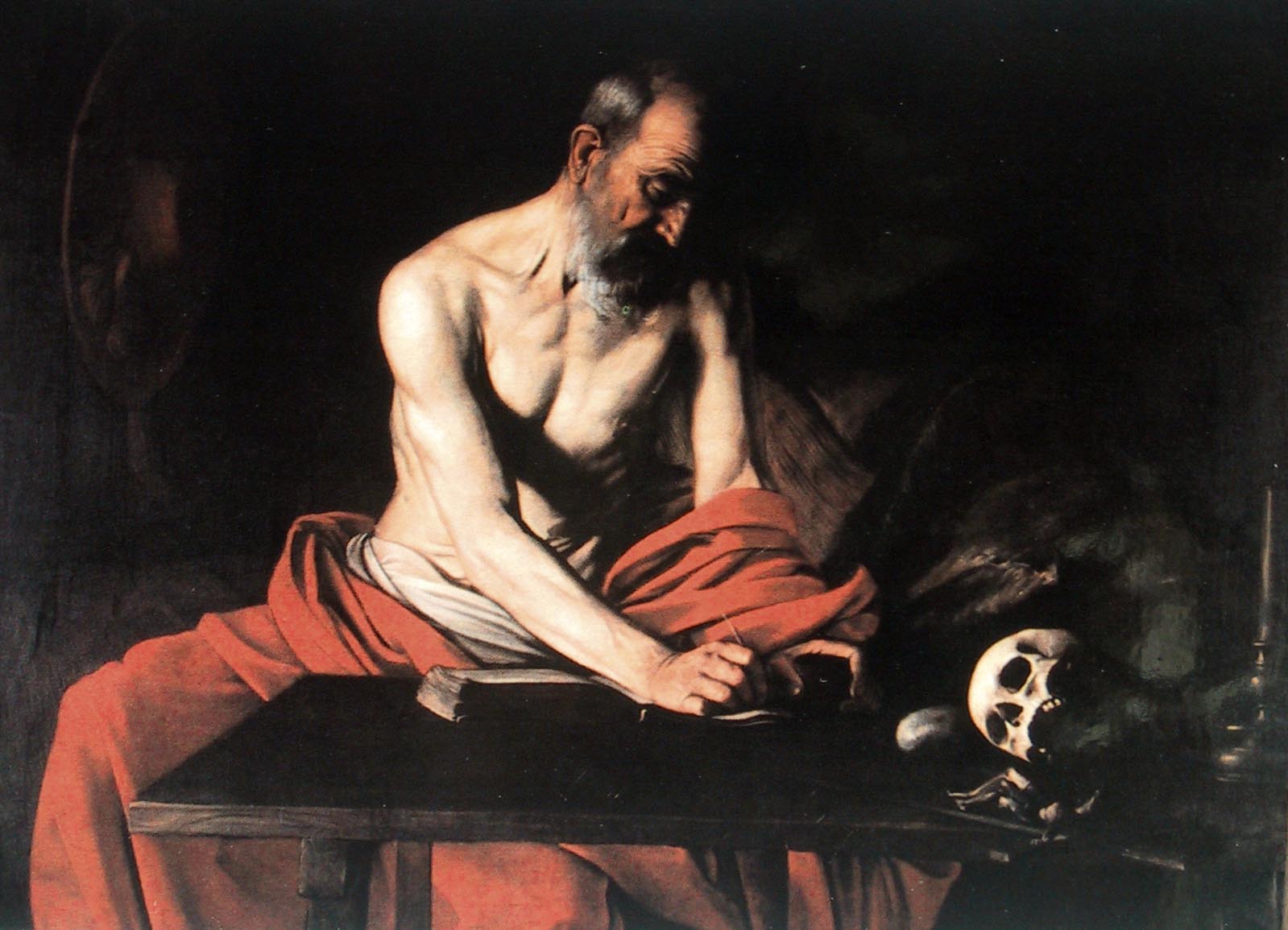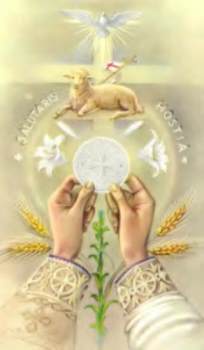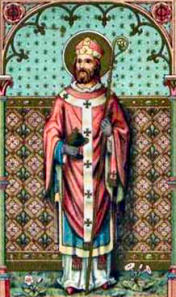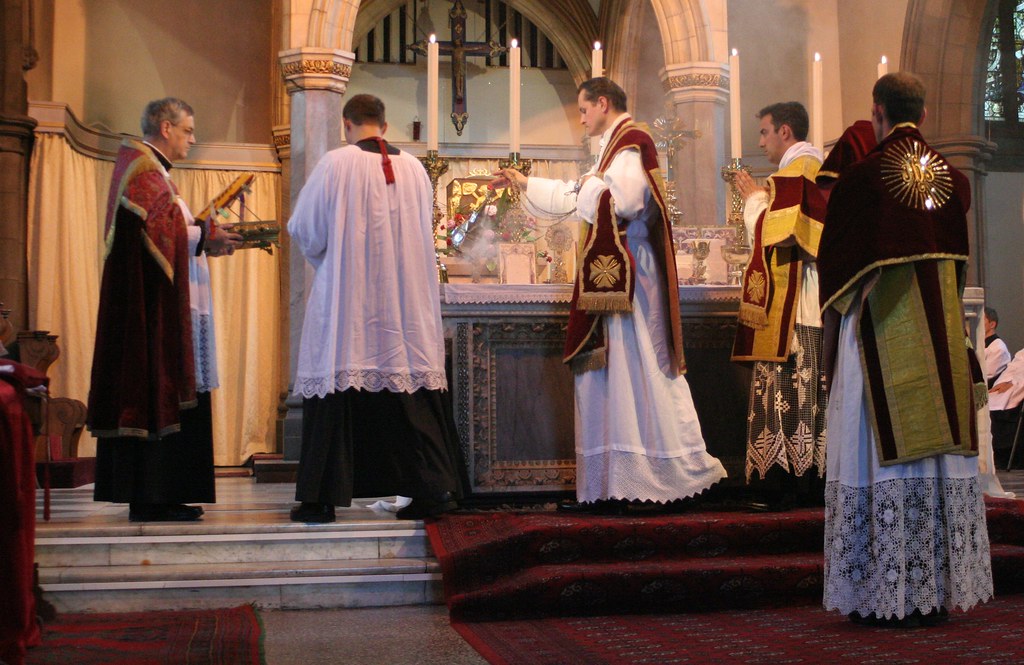
It is with a touch of irritation that I write this piece, and a sense of bemusement. At the end of this week, I had read from Father
Zuhlsdorf that the great Saint John
Vianney will not, as promised, be proclaimed as patron of all priests. It has been 'explained' that the Cure
D'ars is not sufficiently representative of the form of life conducted by the 21st century priesthood. Did the man who became a Victim for our Lord, through offering the clean oblation, who spent many hours in a cramped confessional, who converted his town and its environs and put Satan to flight, not approach the sanctity necessary to inspire us all? Or did the Frenchman not engage in the adequate quantity of social justice and equality schemes?
Such absurdity begs the pertinent question what is the essence of the priesthood? A sense of novelty pervades our culture, where an item or an aspect must appeal to whims and sentiments. Yet, what we lack is not a treasure, but a sufficient reverence and consideration for the many great gifts we have been given. In our fickleness we have cast aside pearls and taken up in eagerness what truly belongs to the swine.
Let us therefore turn to the teaching of the Church, who is 'the pillar and foundation of truth' (1 Tim. 3:15), which will preserve us from modernist innovations and from being tossed about 'by every wind of doctrine' (
Eph. 4:14). The great Council of Trent condemned the heretical position of the 'reformers' that,
'there is not in the New Testament a visible and external priesthood; or that there is not any power of consecrating and offering the true body and blood of the Lord, and of forgiving and retaining sins; but only an office and bare ministry of preaching the Gospel'. It must be noted that the offering of the Sacrifice of the Mass is given first place, and not the
evangelizing of peoples, although this certainly flows out from the efficacy of the Oblation upon the Altar.
Day by day, the priest ascends to the place of sacrifice accompanied by the Immaculate Mary and surrounded by the angels. At the foot of the Altar, he confesses his sinfulness, humbling himself before the congregation and pleading for mercy from the Eternal Father. No man is worthy of such a dignity that surpasses the angels, and no man can take such a calling upon himself (Heb. 5:4). Saint John Chrysostom writes accordingly, 'The work of the priesthood is done on earth, but it is ranked among heavenly ordinances. And this is only right, for no man, no angel, no archangel, no other created power, but the Paraclete Himself ordained this
succession' (On the Priesthood). What a truly awesome sight it would have been to be present when holy Elijah called down fire from heaven to consume an animal, yet the priest of our Lord Christ, calls down the Source of all life, the Holy Spirit to bless this offering (
Veni Sanctificator omnipotens aeterne deus:
et benedic hoc sacrificium tuo sancto nomini praeparatum), so that it may be borne by the hands of the angels to the sight of His Divine Majesty. For many epochs, men could not even offer a sacrifice worthy of a single life, but now, according to the condescension of the Word, a sacrifice is offered that is worthy of God.
The priest, a man taken from many to
confect the Eucharist, for the praise and glory of His name and the good of all holy mother Church, must recognise His unworthiness to stand in the Person of Christ. As he is called to offer the perpetual yes of the Son to the Heavenly Father, the priest must be conformed more closely than all to the Lord. From the very moment of His incarnation in the terrestrial paradise that is the womb of the Mother of God, grace flowed by His divine Person to His Sacred Humanity, consecrating Himself to the High Priesthood whereby He offers Himself. Priest and victim. Accordingly the ordained must himself, although sinful and erring, live the life of a continual oblation before God. He must in his own person become the offering at the altar. Christ was and remains (Hebrews 7:25) the eternal high priest of our religion, showing His precious wounds before His Father, from which out poured blood which cries out for forgiveness more than Abel's (Heb 12:24). We have been released from the snare (
Ps 124:7), even though we were 'children of wrath by nature'(
Eph 2:3) worthy of the fiercest punishment. However, through the ineffable mercy of our Good Lord, a sacrifice of propitiation has been offered sufficient for the salvation of all.
The ministerial and sacramental priesthood of the New and Everlasting Covenant is called to perpetuate the Pure Offering predicted in Micah 1:11 to acknowledge the greatness of God's Most Holy Name. Above the head of the priest after each consecration, the Sacred Victim is held aloft for our adoration, and 'our eyes are on the Lord our God till He show us His mercy' (
Ps 122:2). His whole life must be dedicated to this offering, his heart lifted up (
Sursum corda)to his treasure in Heaven. He is however not alone, the Holy Spirit Who proceeds from the Father and the Son, constantly remains with him, as He did with our Lord Jesus, bestowing grace upon him. The priest must turn to the help of Christians, the Mother of God, whose mantle protects the priests of her Son in a most special manner. For her to reject His priests, would be to reject her Son. He is required to humbly plead for all men, most especially those under the care of Mother Church, for whom the Sacrifice in the first place is offered for. Yet, his prayers are not restricted to those under his care, but must extend to all men, of whatever nation, culture or language, most importantly for the salvation of their souls. No social justice programme can more effectively live the
sojourn of the Saviour on earth who set aside the glory due to His Person and humbled Himself (
Philipians 2:6-7), who came to die. Social justice which has its place can only ever free man from economic burden but abandons him still to sin and slavery to corruption. It has been said that if they had been four more men of the holiness of Saint John
Vianney on this earth, Satan would have been completely powerless, simply because of the efficacy of the prayers poured out from such a tender, loving heart.
Such truths that I have outlined, however uncultured they may be stated, with poor rhetorical skill, should astound all of us. It is most likely that the profound nature of the priesthood is an aspect (in fact, it is the actual reality) of Holy Orders that few Catholics even recognise, beyond a mere notion of a social worker in robes. It is a deplorable fact, yet, we have lost the realisation of the gift and the glory that is the priesthood.
We have now come to the conclusion of the year of the priesthood that our beloved Holy Father in his wisdom had called, but prayers are more than ever needed for our pastors. At the end of their lives, they will be called to account for the souls entrusted to them, and such a burden is terrifying responsibility. Let us therefore venerate our priests as Christ Himself.
Much more could be written concerning the Sacred Priesthood, including the Sacrament of Penance, his prayer, celibacy, Marian devotion, yet I will leave such components to those qualified to do so.
May the grace of our Lord Christ be with you all. Glory be to thee, our God, glory be to thee and praise to His spotless Mother.























